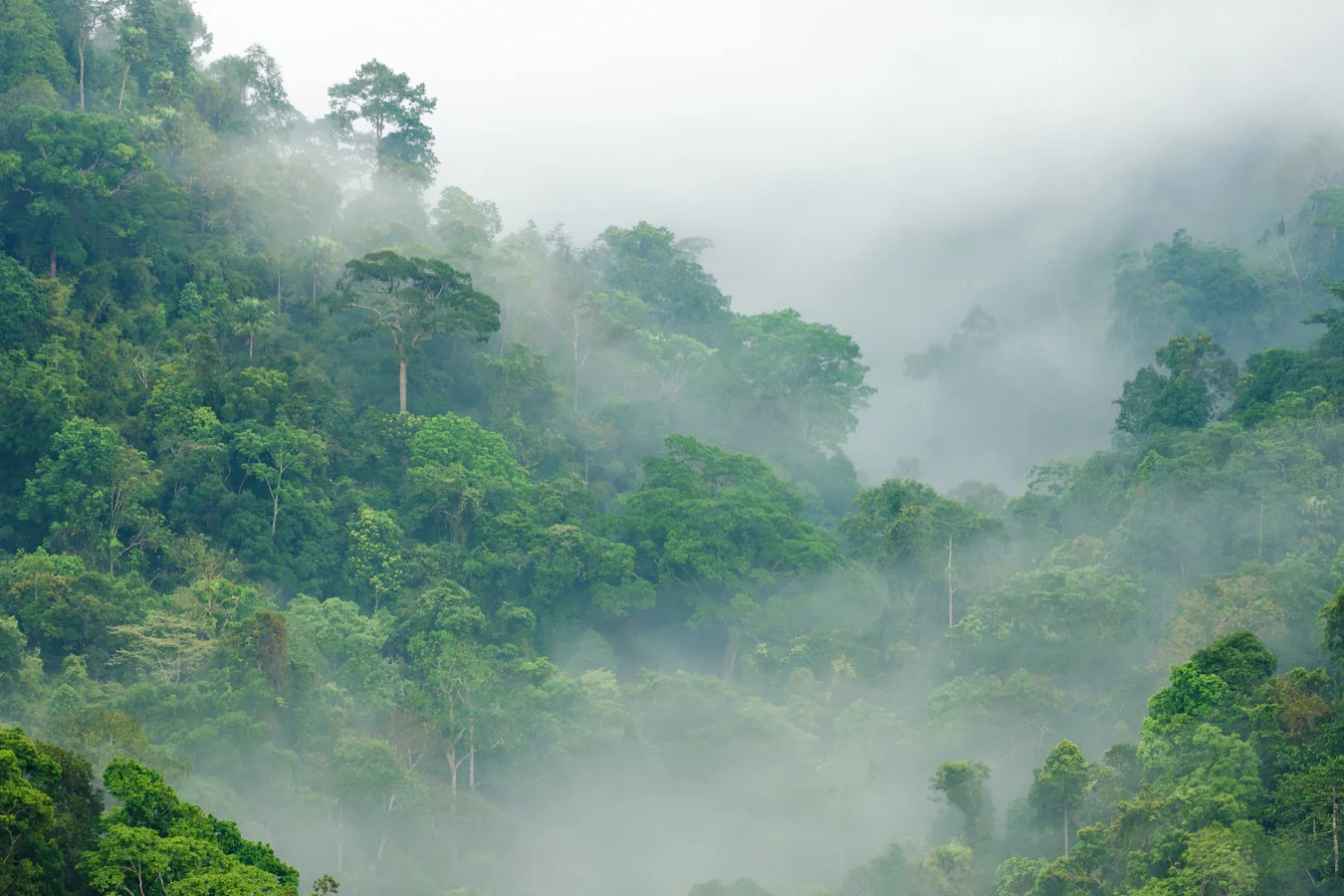
Rainforests, often called the lungs of our planet, are teeming with life and mystery. Did you know that rainforests produce 20% of the world's oxygen? These lush green havens cover only about 6% of Earth's surface but are home to more than half of the world's plant and animal species. Imagine walking through a dense canopy where sunlight barely touches the ground, and every step reveals a new creature or plant. Rainforests are not just about trees and animals; they are vital for regulating global weather patterns and absorbing carbon dioxide. Sadly, these incredible ecosystems face threats from deforestation and climate change. Understanding their importance and the wonders they hold can inspire us to protect them. Let's dive into some fascinating facts about these natural wonders that play a crucial role in our planet's health.
What Makes Rainforests Unique?
Rainforests are magical places teeming with life. These dense, lush forests are home to countless species and play a crucial role in maintaining the planet's health. Let's explore some fascinating facts about these incredible ecosystems.
-
Biodiversity Hotspots: Rainforests are home to over half of the world's plant and animal species. This incredible diversity makes them vital for ecological balance.
-
Layers of Life: Rainforests have distinct layers, each with unique ecosystems. The emergent layer, canopy, understory, and forest floor all support different forms of life.
-
Rain, Rain, and More Rain: These forests receive a staggering amount of rainfall, often exceeding 100 inches per year. This constant moisture supports the lush vegetation.
-
Carbon Sinks: Rainforests absorb vast amounts of carbon dioxide, helping to regulate the Earth's climate. They act as the planet's lungs, producing oxygen and storing carbon.
-
Medicinal Treasure Troves: Many modern medicines originate from rainforest plants. Scientists continue to study these plants for potential new treatments.
The Importance of Rainforests
Rainforests are not just beautiful; they are essential for the well-being of our planet. Their impact extends far beyond their borders.
-
Climate Regulation: By absorbing carbon dioxide, rainforests help mitigate climate change. They play a crucial role in maintaining global temperature and weather patterns.
-
Water Cycle: Rainforests contribute to the Earth's water cycle by releasing water vapor into the atmosphere. This process influences rainfall patterns worldwide.
-
Habitat for Indigenous Peoples: Many indigenous communities call rainforests home. These people rely on the forest for food, shelter, and cultural practices.
-
Economic Resources: Rainforests provide valuable resources like timber, nuts, fruits, and rubber. Sustainable management of these resources is vital for economic development.
-
Tourism and Recreation: Rainforests attract millions of tourists each year. Their breathtaking beauty and unique wildlife offer unforgettable experiences.
Threats to Rainforests
Despite their importance, rainforests face numerous threats. Human activities and natural events put these ecosystems at risk.
-
Deforestation: Logging, agriculture, and urbanization lead to significant rainforest loss. This destruction threatens biodiversity and contributes to climate change.
-
Illegal Wildlife Trade: Many rainforest species are endangered due to poaching and illegal trade. This practice disrupts ecosystems and endangers animal populations.
-
Climate Change: Rising temperatures and changing weather patterns affect rainforest health. Droughts and fires become more frequent, threatening these ecosystems.
-
Mining and Extraction: Mining for minerals and oil leads to habitat destruction and pollution. These activities have long-lasting impacts on rainforest environments.
-
Invasive Species: Non-native plants and animals can disrupt rainforest ecosystems. They often outcompete native species, leading to biodiversity loss.
Conservation Efforts
Efforts to protect rainforests are crucial for their survival. Conservation initiatives aim to preserve these vital ecosystems for future generations.
-
Protected Areas: Establishing national parks and reserves helps safeguard rainforests. These protected areas limit human activities and preserve biodiversity.
-
Sustainable Practices: Promoting sustainable agriculture and forestry reduces rainforest destruction. These practices balance economic needs with environmental protection.
-
Reforestation Projects: Planting trees in deforested areas helps restore rainforest ecosystems. Reforestation supports biodiversity and carbon sequestration.
-
Community Involvement: Engaging local communities in conservation efforts is essential. Indigenous knowledge and participation enhance rainforest protection.
-
International Cooperation: Global partnerships and agreements support rainforest conservation. Collaborative efforts address threats and promote sustainable development.
Rainforests: Nature's Lungs and More
Rainforests are vital for our planet's health. These lush ecosystems, often called nature's lungs, produce about 20% of the world's oxygen. They also house countless species, many still undiscovered. With their dense canopies and rich biodiversity, rainforests play a crucial role in regulating the Earth's climate by absorbing carbon dioxide. Sadly, deforestation threatens these vital areas, leading to habitat loss and contributing to climate change. Protecting rainforests isn't just about saving trees; it's about preserving a delicate balance that supports life on Earth. Every effort to conserve these green giants helps maintain biodiversity, supports indigenous communities, and combats global warming. By understanding the importance of rainforests, we can make informed choices to support their conservation. Whether it's through sustainable practices or supporting organizations dedicated to rainforest protection, every action counts in safeguarding these incredible ecosystems for future generations.
Was this page helpful?
Our commitment to delivering trustworthy and engaging content is at the heart of what we do. Each fact on our site is contributed by real users like you, bringing a wealth of diverse insights and information. To ensure the highest standards of accuracy and reliability, our dedicated editors meticulously review each submission. This process guarantees that the facts we share are not only fascinating but also credible. Trust in our commitment to quality and authenticity as you explore and learn with us.


